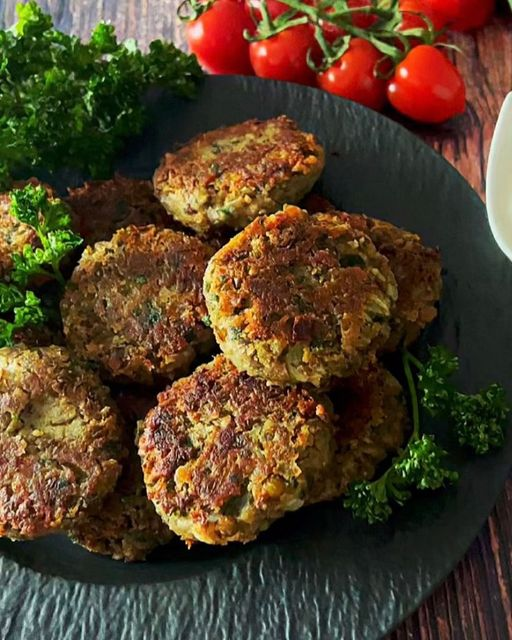Materials
️1.5 cups green lentils
️4 glasses of water
️4 tablespoons of olive oil
️ 1 piece of onion
️2 cloves of garlic
️A little chopped parsley
️1 cup of breadcrumbs
️2 teaspoons of salt
️2 teaspoons of dried mint
Cup size: 200 ml
Instructions
Boil the lentils with 4 glasses of water for about 30 minutes. Drain the boiled lentils.
Saute the chopped onions in olive oil in a pan.
In a bowl, add the fried onions, parsley, garlic cloves, breadcrumbs, spices and boiled lentils.
Knead all the ingredients well and fry them until they turn into a round shape in oil in a pan. You can serve it with vegan yogurt if you wish.
Enjoy your meal.
Gut Health:
Plant-based diets are often associated with improved gut health due to the high fiber content from fruits, vegetables, and whole grains. A healthy gut microbiome is linked to better digestion and overall well-being.
Anti-Inflammatory Properties:
Many plant-based foods have anti-inflammatory properties, which can help in reducing inflammation in the body. Chronic inflammation is associated with various health issues, and a vegan diet may contribute to its prevention.
Sports Performance:
Contrary to the misconception that vegan diets lack protein, many successful athletes follow plant-based diets to enhance their performance. Plant-based proteins can support muscle building and recovery.
Reduced Risk of Foodborne Illnesses:
Plant-based diets eliminate the risk of foodborne illnesses associated with the consumption of undercooked or contaminated animal products.
Economic Impact:
A vegan diet can be more economical as plant-based protein sources tend to be cost-effective compared to some animal products. It may be a budget-friendly option for individuals or families.
Mindful Eating:
Adopting a vegan lifestyle often promotes mindful eating. Being more conscious of food choices and sources can lead to a healthier relationship with food and a greater appreciation for the environmental impact of dietary decisions.
Preservation of Biodiversity:
The expansion of animal agriculture often leads to habitat destruction and loss of biodiversity. Choosing a vegan diet supports the preservation of ecosystems and the protection of various species.
Culinary Diversity:
Veganism introduces individuals to a diverse range of cuisines and ingredients from around the world. Exploring plant-based cooking can be a culinary adventure, embracing flavors and techniques from different cultures.
Reduced Antibiotic Resistance:
The use of antibiotics in animal farming contributes to the rise of antibiotic-resistant bacteria. Opting for a vegan diet can be a way to reduce the demand for such practices and promote responsible antibiotic use.
Cruelty-Free Beauty and Personal Care:
Veganism extends to beauty and personal care products. Choosing cruelty-free, vegan alternatives ensures that your lifestyle aligns with ethical choices beyond just dietary preferences.
